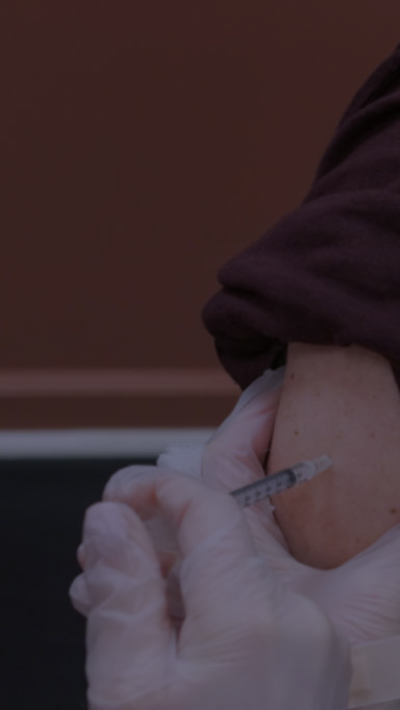Contents
Workplace Watch is an occasional publication tracking legislative and regulatory reform in relation to workplace law.
As it becomes clear just how much the Delta variant has changed the game, and as the focus moves from elimination to suppression and from lockdowns to vaccination, the issues confronting employers are evolving and the planning horizon is shifting from the near term to the long term.
Also the tension between individual rights, the Government’s responsibility to protect the public health, and the employer’s ability to manage Covid risk in the work environment has already given rise to litigation and there will inevitably be more cases in the future.
With this in mind, we have created a dedicated COVID-19 section in Workplace Watch to sit between and complement the existing Employment and Health and Safety sections.
Contents
Employment
COVID-19
Health & safety
Immigration
Appeal Court judgment due on Metroglass Holidays Act challenge
The Appeal Court is expected to deliver its final judgment within the next couple of months on an application by Metropolitan Glass and Glazing Limited (Metroglass) to overturn a decision of the Employment Court.
Metroglass claims that the Employment Court erred in law when it found that bonuses paid under Metroglass’s short term incentive bonus scheme were “payments that the employer is required to pay to the employee under the employee’s employment agreement” and therefore fell within the definition of “gross earnings” under section 14 the Holidays Act 2003.
BusinessNZ appeared in Court with Metroglass because the Employment Court interpretation, if upheld by the Court of Appeal, would narrow substantially the class of bonus payment that would escape the Holidays Act, and would have implications for companies beyond Metroglass.
To learn more, read the article and the Court Decision.
Government to adopt all Holidays Act Taskforce recommendations
The Government has committed to adopting all 22 of the tripartite Holidays Act Taskforce’s recommendations. These include:
- phasing in sick leave entitlement from one day in the first year of employment by an additional day per month until the 10-day minimum is reached
- entitling employees to bereavement and family violence leave from their first day of employment and extending bereavement leave to include more family members and to reflect modern family structures and cultural family groups
- removing the parental leave ‘override’ to address discrimination against parents who take time off to care for their young children (with the effect that when these employees return to work, they will be paid at their full rate for annual holidays),
- requiring all cash payments to be included in the calculation of gross earnings, and
- removing the difference between “accrued” and “entitled” annual leave.
Announcing the decision in February this year, Workplace Relations and Safety Minister Michael Wood said officials would be involving “a range of payroll experts” on the policy design “to make sure we get it right”.
The Minister hopes to introduce legislation in early 2022, and has promised that businesses will be given “plenty of time” to prepare for the changes.
Read the statement.

New sick leave law to be implemented on worker’s one year anniversary
The minimum sick leave entitlement has been raised from five days to 10, with employees becoming eligible on their work anniversary date – a factor that employers will need to be aware of and to provide for. The maximum annual entitlement will remain at 20 days.
To learn more, read the statement.
Bereavement leave for miscarriages, stillbirth
Employees are now entitled to up to three days’ paid bereavement leave if they or their partner experience miscarriage or a still birth. The legislation was passed in Parliament on 24 March, to take effect once the Bill had Royal Assent.
View the article here.
Matariki days for the next 30 years
Legislation to create Matariki as a public holiday is now before the Māori Affairs Committee, which is due to report back by 10 March 2022. The Bill sets out the dates for Matariki observance for the next 30 years – from 2022 to 2052.
To learn more, read the statement.
More protection for vulnerable contractors on horizon
The Government has convened a tripartite working group comprising the CTU, Business NZ and the Ministry of Business, Innovation and Employment (MBIE) to look at options to better protect vulnerable contractors.
The work will build on a discussion document consulted on by MBIE through late 2019, early 2020 which identified options to:
- deter employers from misclassifying workers as contractors when they are really employees
- make it easier for workers to obtain a determination of their employment status
- change the definition of an employee (either by changing the tests used by the court to determine employment status or by legally defining certain occupations as employees), and
- enhance the protections available to contractors, but without making all contractors into employees.
Michael Wood told the select committee that an outcome should be available late this year or early next year and that he expected the reforms would pave the way for contractors to be covered by Fair Pay Agreements.
To learn more, view the article here.
Labour on a mission with fair pay agreements
After being stymied last term from delivering on its promise to introduce fair pay agreements, the Labour Cabinet has committed to having legislation in the House this year for passage in 2022.
Whether this timetable is still possible given the disruptive effects of Covid-19 and the Government’s already ambitious reform agenda (Three Waters, the health reforms, the Resource Management Act etc.) remains to be seen.
However, the policy if/when enacted has the potential substantially to increase collective bargaining and union influence in the workplace.
Read our commentary here.

Supreme Court affirms ERA’s sole jurisdiction over employment disputes
The Supreme Court has affirmed that if a claim reflects a problem in, or relates to, or arises from an employment relationship, the ERA has exclusive jurisdiction. The majority decision supported earlier decisions from both the High Court and the Court of Appeal.
The case was taken by an employee who had resigned from her job after one year and almost seven years later filed dual proceedings pertaining to the same matter – pursuing a personal grievance in the ERA and claiming in the High Court that her employer had negligently failed to protect her from harm.
Her former employer applied successfully to strike out the High Court action on the basis that the ERA had sole jurisdiction and that the claim was an abuse of process as it duplicated the ERA proceeding.
View the Supreme Court's decision.
WorkSafe guidance on if a role requires a vaccinated employee
Employers can require employees outside the Vaccination Order to be vaccinated provided this is necessary for work health and safety purposes, but this can be a difficult area to negotiate.
We recommend a two-page guidance prepared by WorkSafe, full of helpful links to other official information sites, on the steps employers should follow and some of the questions they should ask in completing the risk assessment.
It says the focus must be on the role rather than the individual performing the role; that the risk evaluation must be completed with employees and their representatives, and that employers may like to get professional advice for their specific circumstances.
If your risk ratings tend toward higher risk and you are not able to reduce that risk by implementing more controls, you and your employees should consider whether the work should be performed by a vaccinated employee.
Among the risk factors WorkSafe suggests should be considered are:
- how many people the employee comes into contact with when carrying out the work
- how easy it will be to identify those people (e.g., co-workers are easily identified and therefore present a lower risk than unknown members of the public)
- how close is the employee in proximity to others and how sustained is the contact, and
- does the work involve regular interaction with people considered at higher risk of severe illness from Covid.
Legal challenge to Vaccination Order fails
A former employee of the New Zealand Customs Service (Customs) who came within the Public Health Response (Vaccinations) Order and lost her job after refusing to be vaccinated has failed to overturn her termination or to have the Order declared invalid.
She first went to the Employment Relations Authority (ERA) to seek reinstatement for unjustified dismissal but the ERA found that she had not been unjustifiably dismissed or disadvantaged by Customs and that the ending of her employment was “prompted by extraordinary external factors outside the control of the parties”.
So she went to the High Court to have the Order invalidated, arguing two grounds – illegality and irrationality.
In relation to the illegality argument, the Court found that correct procedure had been followed and also that, to the extent the Order contained an element of discrimination, the limitation was “proportional and demonstrably justified” by the public health benefits.
What the Court described as “a number of disparate arguments” were advanced in support of the irrationality proposition, including that the Order:
- was not created in partnership with Māori, as required by Te Tiriti
- imposed conditions which were outside the remit of the Health and Safety at Work Act, and
- instigated a breach of the Universal Declaration of Human Rights.
All of these claims were rejected by the Court.
The Government has since extended the Order to high risk workers in the health and disability sectors and to school and early learning staff and support people who have contact with students. They have to have had both jabs by 1 December 2021 and 1 January 2022 respectively.
View the ERA's decision and the High Court judgment.

ERA on border employers’ rights to sack unvacc-ed workers
Four aviation security employees are taking the Civil Aviation Authority to the ERA for unjustified dismissal after they were sacked for refusing to be vaccinated. As with the worker in the case above, they will be covered by the Vaccination Order as they are border workers.
Their application for interim reinstatement was declined by the ERA, as was the application of an Auckland International Airport employee who also refused vaccination. This was despite the fact that the ERA found the employee had an arguable case for an unjustified disadvantage grievance relating to the procedure Auckland Airport took leading to the decision to terminate employment.
The cases to date suggest that the ERA and the courts will be reluctant to find in favour of unvaccinated border workers where the employer has carried out a thorough risk assessment and followed a fair process. It is yet to be seen whether the same approach will be taken in favour of employers who mandate vaccinations for non-border workers.
View the ERA's decision and the article.
Managing vaccination issues in a workplace context
As the primary weapon in the battle to contain Covid-19 moves from lockdowns to a 90% plus vaccination target, employer attention is increasingly focused on how to deal with the jab reluctant in a workplace context.
We have developed detailed Q&A format advice across a number of areas, including:
- the circumstances under which an employer may require an employee to be vaccinated
- the options available to an employer if a person in a safety-sensitive role refuses vaccination
- whether an employer may require proof of vaccination and/or incentivise employers to be vaccinated
- what to do if an important customer or member of the supply chain makes vaccination a condition of doing business, and
- options available if staff refuse to work with unvaccinated co-workers.
Read our commentary.
Government financial supports
Workplace Relations Minister Michael Wood used his appearance before the Education and Workforce Committee during the Level 4 lockdown to set out the provisions available to employers and employees.
Key points were:
- employers in receipt of the wage subsidy must make best endeavours to pay employees at least 80% of their normal earnings and “at a bare minimum” must ensure that all of the money received from the Government through the subsidy goes to the employee, and
- the Short Term Absence Payment and Leave Support Scheme is available to assist employees through self-isolation or while awaiting COVID test results.
In addition, Finance Minister Grant Robertson told the Finance and Expenditure Committee that the Resurgence Support Payment, which provides $1,500 plus $400 per FTE to a cap of $21,000 to help businesses meet their fixed costs, could also be directed to wages.

To incentivise vaccination or not – that was a question
The Business NZ-Network-Pulse survey for September on how businesses are managing the impacts of Covid included a question on whether employers were, or were considering, incentivising their staff to vaccinate.
The results were: 17%, yes; 55.48%, no; 27.52%, unsure.
Two companies that offering incentives are:
- NZ Steel & Tube which is paying its employees $150 in cash, KiwiSaver contributions, or company shares if they get both jabs by mid-November, and
- Vodafone which is offering staff who vaccinate $200 free broadband and a chance to win one of 10 new phones.
- Air New Zealand is considering making vaccination compulsory for all staff who interact with customers or their baggage and for anyone required to come into the workplace when public health measures stipulate working from home.
This will be in addition to the approximately 2,300 cabin crew, pilots, engineering and maintenance, airport and supply chain workers who come under the Government Vaccination Order and would take the total required to vaccinate to circa 4,000 – around half of the Air New Zealand workforce.
For more information, see the survey, article, and statement.
Business Leaders’ Forum guidance on developing a vaccination policy
The Business Leaders’ Health & Safety Forum has produced a four-page publication to assist employers to create a workplace vaccination policy.
The guidance is based on the experience of Forum members and international research. It does not profess to be complete but looks at some of the issues that employers may need to consider – e.g. whether the policy should cover all workers or just those at most significant risk, whether it should be extended to visitors and contractors, the compliance responsibilities of employees and managers, whether there are some roles where vaccination might be deemed mandatory, how to manage exemptions on religious and health grounds, and record keeping requirements.
For more information, read the guidance.
Diminishing returns from WorkSafe
WorkSafe’s investigation numbers are on a sharp downward trajectory having slipped from 359 in 2016, the first year following the enactment of the Health and Safety at Work Act, to just 38 in 2020, as at 11 May this year.
The numbers for the intervening years show a continuous decline from 305 in 2017 to 215 in 2018 and 186 in 2019. Obviously the 2020 total will contain a large COVID effect, but there is nothing to suggest that the trend has been reversed.
Chapman Tripp H&S litigation specialist Garth Gallaway has long expressed concern that WorkSafe may not have the resources it needs to be effective.
He told Radio New Zealand that, where a regulator is resource constrained so must pick the cases it investigates, complacency can arise as people think they are unlikely to be prosecuted. Further, significant opportunities to learn and spread valuable information are lost when the regulator does not investigate or otherwise become involved.
But he said that the diminishing number of investigations may also, in small part, reflect the effect of programmes WorkSafe had initiated to achieve results outside an enforcement context – in particular its Innovation Projects Team and its Complex Assessments Team; the first to target systemic issues through direct engagement with the employer, and the second to promote innovative approaches to workplace H&S.
For more information, see the investigations summary.

An example of the Complex Assessments Team in action
WorkSafe announced on 2 July that it will take “a close look” at how the Talley’s group of companies is meeting its obligations under the Health and Safety at Work Act.
Talley’s has been the subject of a number of enforcement actions over the years across the various industries in which it is engaged, and WorkSafe is concerned there may be “systemic issues that need to be addressed in the boardroom”.
WorkSafe was careful to specify that it was not conducting an “investigation” or responding to a particular incident but instead to a pattern of behaviour.
To learn more, see WorkSafe's statement.
Practical guidance from WorkSafe
WorkSafe has prepared a six page guidance note to assist people to stay “mentally healthy” when working from home on “office-type” work.
The advice covers: how to set up a healthy work environment, including creating physical boundaries to separate work life from home life; the importance of staying socially connected to your team and being open with your team mates and manager about how you are feeling; and practical steps to support good work design – e.g., setting up a routine, discussing and agreeing deadlines, staying physically active, and identifying tasks which could be done away from the desk.
WorkSafe has also produced ‘good practice’ guidelines for employers on managing the physical and mental health problems identified with shift work.
Employers are encouraged to put in place initiatives to support, assess and manage these risks and to monitor control measures. This will require setting up data bases on: work patterns, reports of fatigue and near misses, overtime records, incidents of sick leave and absenteeism, and any increases/decreases in productivity.
The guide encourages employers to organise rosters taking into account six factors:
- Physical and mental demands of the role
- The work activity
- Shift pattern
- Shift timing
- The shift duration
- Rest breaks
To learn more, view the working from home guidance, and shift work guidance.
Burn-out a serious issue in NZ, Australia
An Australia-New Zealand study of more than 1,500 workers has found that burn-out is a significant issue with 61% of the sample showing symptoms of exhaustion; 57% showing a lack of engagement and 52% showing signs of cynicism.
The most common causes of stress, a precursor to burn-out, were: task design, workplace politics or bureaucracy, unrealistically high workloads, manager behaviour, co-worker behaviour, fear of unemployment, long hours, and workplace bullying, harassment or discrimination.
Significantly, all six indicators were much lower among workers who felt able to talk openly and without recrimination to someone in a leadership position about feeling stressed. While 81% of the survey had access to at least one employer-provided programme or service to support their physical and mental wellbeing, take-up was very low.
Director of the research agency, Tania Domett, said the study's results highlighted the need for employers to:
- reduce stress factors by organising and scheduling work better, helping workers organise their workload, preventing bullying and discrimination, and supporting managers to be better leaders who recognise the key signs of burnout in themselves and their teams, and
- build opportunities for social connection, being open about stress in the workplace, destigmatising mental health conversations and "listening to your people to find out what would work best for them".
For more information, see the article.

WorkSafe data centre
WorkSafe has created an online centre providing access to monthly and annual data on fatalities and injuries by year and sector.
For more information, see the data centre.
Useful guide to protecting mental wellbeing at work
The New Zealand Business Leaders’ Health and Safety Forum has produced a guide for CEOs and their organisations on Protecting Mental Wellbeing at Work. It has high production standards and takes a strongly practical focus.
The Forum has more than 350 members, comprising senior representatives (CEOs or MD’s) of significant New Zealand companies and employers.
To learn more, view the guide.
Worker prosecuted for bullying
Australia has recorded its first successful prosecution under the reckless conduct provisions of the Australian Work, Health and Safety Act.
The offender – a site supervisor in South Australia – was fined $12,000 (after a discount for pleading guilty) for failing to stop, and being a participant in, a “workplace prank” in which an apprentice electrician was squirted with a flammable liquid and set alight.
The apprentice was not seriously injured.
View the Australian legal commentary to learn more.
An immigration policy reset
The Government’s planned immigration policy “reset” will respond to a criticism from the OECD that the employer-assisted temporary work visa system is not limiting migrant recruitment to resolving genuine skills and labour shortages, is attracting too many low-skilled migrants and may be weakening incentives for employers to employ and train New Zealanders.
Changes to address these issues – in particular a new requirement that employers be accredited and meet standards of good practice – will come into effect this November, but the Government will use the hiatus created by the COVID pandemic to conduct a much larger review and has tasked the Productivity Commission with developing recommendations to ensure that migration promotes productivity in a way that supports the overall wellbeing of New Zealanders.
Announcing the move, Finance Minister Grant Robertson said: “Many migrants settle smoothly and prosper here, benefiting themselves, their families and New Zealand. They bring a highly valuable diversity of skills, talents, knowledge, experience, international connections, and financial, social and cultural capital.
However, it is important that we better understand the economic and other impacts of New Zealand’s immigration system. For example, some firms, industries and regions rely heavily on migration to meet their skill and labour needs and there is concern that this has led to downward pressure on wages.
The inquiry, the first to be conducted under new Commission Chair Ganesh Nana, will take a system-wide view, including the impact of immigration on the labour market, housing and associated infrastructure, and the natural environment.
To learn more, see the speech and Robertson's statement.
Speak to our experts
We can assist you in all areas of employment law, including health and safety, personal grievances, litigation, collective bargaining, disputes and mediations, redundancies, restructuring, senior executive employment, exit negotiations and post-employment arrangements. Please get in touch with one of our experts if you would like to discuss any topic in more detail.
Marie Wisker, Partner
 Garth Gallaway, Partner
Garth Gallaway, Partner
Vonda Engles, Senior Associate








































